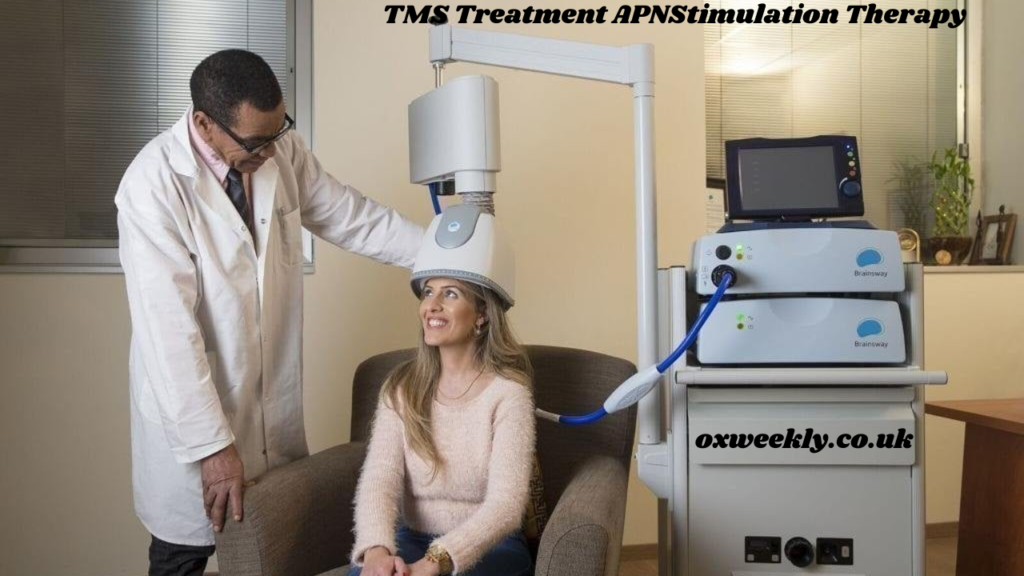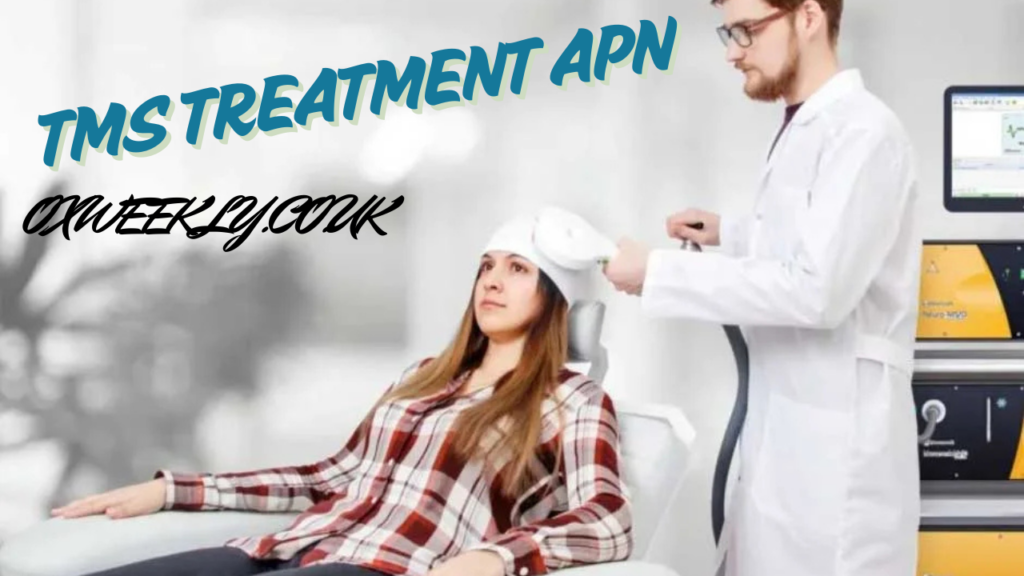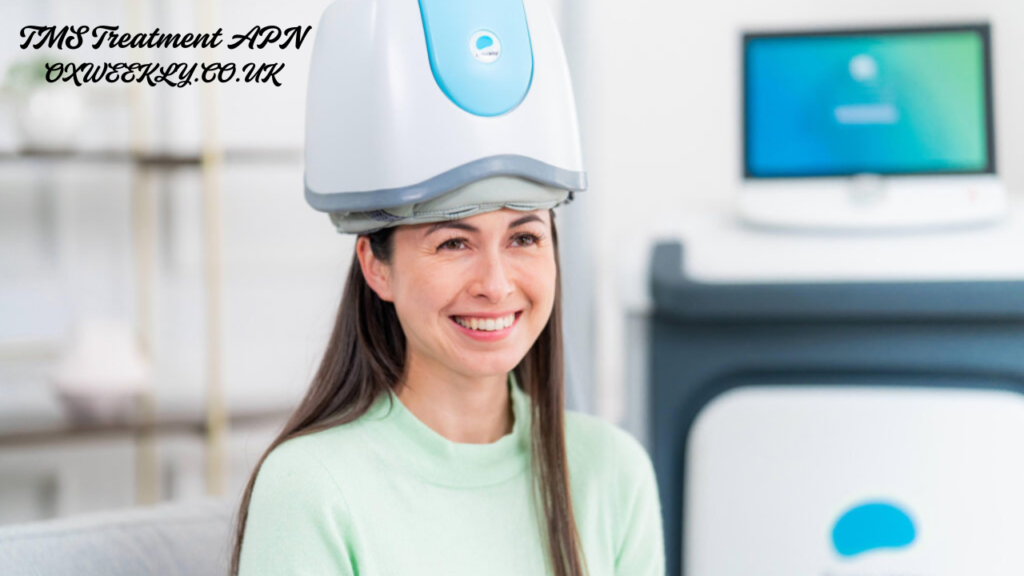Introduction to TMS Treatment and the Role of APNs
A novel non-invasive treatment for major depressive disorder (MDD) and other neurological conditions is transcranial magnetic stimulation (TMS) therapy. This new treatment uses magnetic fields to stimulate certain brain regions associated with mood regulation. In order to ensure that patients get safe and effective treatment, advanced practice nurses (APNs) are essential to the administration, monitoring, and optimization of TMS therapy.
APNs are now essential to specialist therapies like TMS as healthcare continues to change. They are vital team members in mental health and neurological care settings because of their extensive training and clinical skills, which enable them to deliver high-quality treatment. To fully appreciate the importance of their function in contemporary medical practice, one must comprehend their duties in TMS therapy.
What is TMS Treatment?

TMS treatment is a sort of neuromodulation in which particular brain areas are repeatedly stimulated by magnetic pulses. Patients who have not responded to traditional treatments like medicine and psychotherapy are the major candidates for it. Outpatient settings are employed for the treatment, which generally comprises of multiple sessions spaced out over a few weeks.
Unlike electroconvulsive therapy (ECT), TMS does not require anesthesia and has fewer side effects, making it a preferable option for many patients. This therapy is FDA-approved for conditions like depression, obsessive-compulsive disorder (OCD), and migraine headaches, with ongoing research exploring its effectiveness for other mental health disorders.
The Critical Role of Advanced Practice Nurses in TMS Therapy

Advanced Practice Nurses (APNs) are highly trained healthcare professionals who specialize in specific areas of patient care. In TMS therapy, they have a significant role in assessment, administration, monitoring, and patient education. Their knowledge guarantees that TMS therapy is not only effective but also administered safely and effectively.
1. Patient Assessment and Eligibility Determination
Assessing a patient’s suitability for TMS therapy is the responsibility of APNs. This entails finishing thorough examinations, reviewing medical histories, and identifying any contraindications, such as epilepsy or the presence of metal implants. Additionally, they assess the severity of the patient’s illness and, using expert advice, select the most effective treatment plan.
2. TMS Treatment Planning and Customization
Every patient needs a customized treatment plan, and APNs are essential in adjusting therapy to suit each patient’s requirements. They collaborate with neurologists and psychiatrists to establish the parameters of stimulation, such as the frequency, intensity, and length of sessions. This personalization reduces the possibility of adverse effects while optimizing the therapy’s efficacy.
3. Administration and Supervision of TMS Sessions
While TMS technicians often operate the equipment, APNs oversee the entire process to ensure proper protocol adherence. They provide hands-on guidance, ensuring that the coil placement and stimulation settings are correctly applied. APNs also monitor the patient’s response to treatment, making adjustments as necessary to enhance efficacy and comfort.
4. Monitoring and Managing Side Effects
Although TMS treatment is usually well tolerated, some individuals may have modest side effects such headaches, lightheadedness, or soreness in their scalp. In order to guarantee patient comfort, APNs are essential in recognizing, controlling, and reducing these symptoms. They are taught to see warning indications of negative reactions and intervene quickly if necessary.
5. Patient Education and Emotional Support
APNs make sure that patients and their families comprehend the treatment process because education is a key part of TMS therapy. They address any worries or misunderstandings by outlining what to anticipate both during and after sessions. Since many patients receiving TMS therapy are coping with serious mental health issues, it is equally essential to offer emotional support. APNs assist patients stay dedicated to their therapy by providing them with support and reassurance.
6. Collaboration with Multidisciplinary Teams
TMS therapy involves a team-based approach, and APNs collaborate with psychiatrists, psychologists, technicians, and other healthcare providers. Their ability to communicate and coordinate care ensures that each patient receives comprehensive treatment tailored to their unique needs.
7. Ongoing Evaluation and Treatment Adjustments
Throughout the treatment course, APNs continuously evaluate patient progress. They monitor symptom improvement, track changes in mental health status, and adjust treatment plans as necessary. Their clinical expertise enables them to determine when modifications are needed to optimize outcomes.
The Growing Demand for APNs in TMS Therapy

The need for qualified APNs in this profession is only increasing as TMS treatment becomes more and more popular. A growing number of individuals are looking for alternatives to medication-based therapies for mental health conditions. TMS-focused APNs have a distinct chance to support this growing field of medicine and provide people with diseases that are resistant to therapy hope.
The integration of APNs in TMS therapy also helps address the shortage of mental health professionals. Their ability to perform comprehensive assessments, administer treatments, and manage patient care allows for greater accessibility to this innovative therapy.
Challenges and Future Prospects
Despite its benefits, TMS therapy still faces challenges, including limited insurance coverage and accessibility. APNs are at the forefront of advocating for broader acceptance of TMS, helping to improve policies and expand treatment availability.
In the future, advancements in TMS technology may lead to even more effective and targeted treatments. APNs will continue to play a pivotal role in implementing these advancements, ensuring that patients receive the highest standard of care.
Conclusion
For patients suffering from treatment-resistant depression and other neurological illnesses, TMS therapy is a game-changer in mental health care. Because of their skill in assessment, treatment administration, patient care, and ongoing evaluation, advanced practice nurses are vital to the efficacy of TMS therapy. Their participation boosts this non-invasive therapy’s efficacy and accessibility while having a big influence on patient outcomes.
As the demand for alternative mental health treatments grows, the role of APNs in TMS therapy will become even more crucial. Their dedication and clinical skills ensure that patients receive safe, personalized, and effective care, solidifying their place as vital contributors to the evolving landscape of mental health treatment.

































